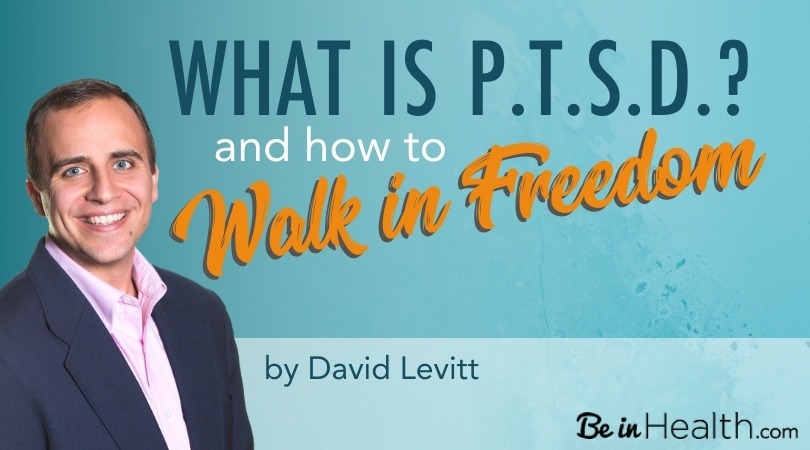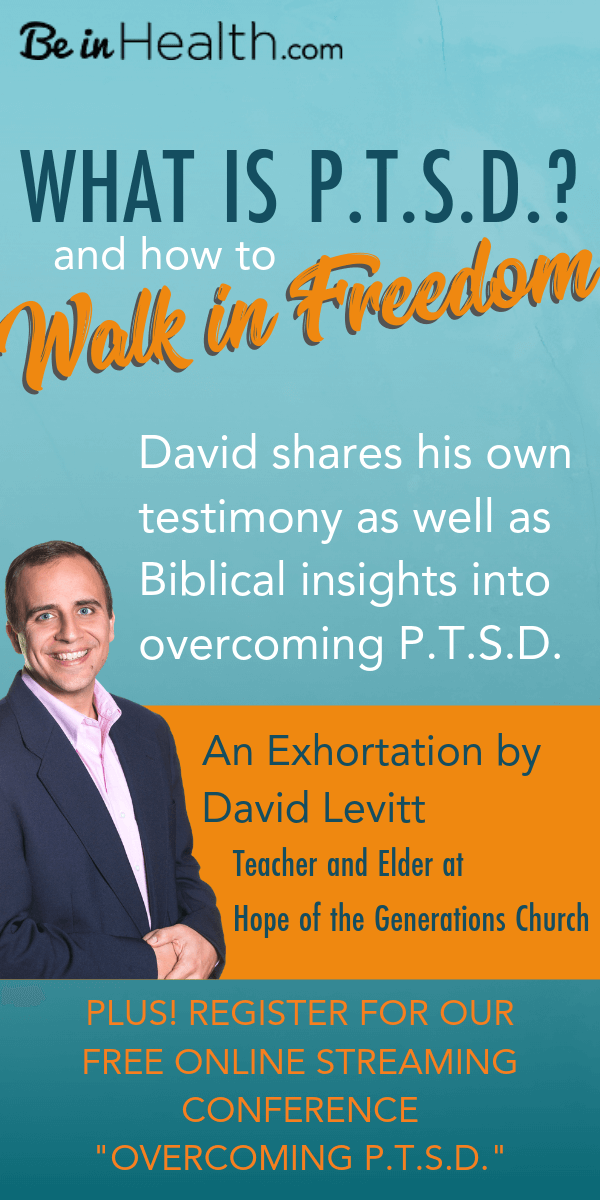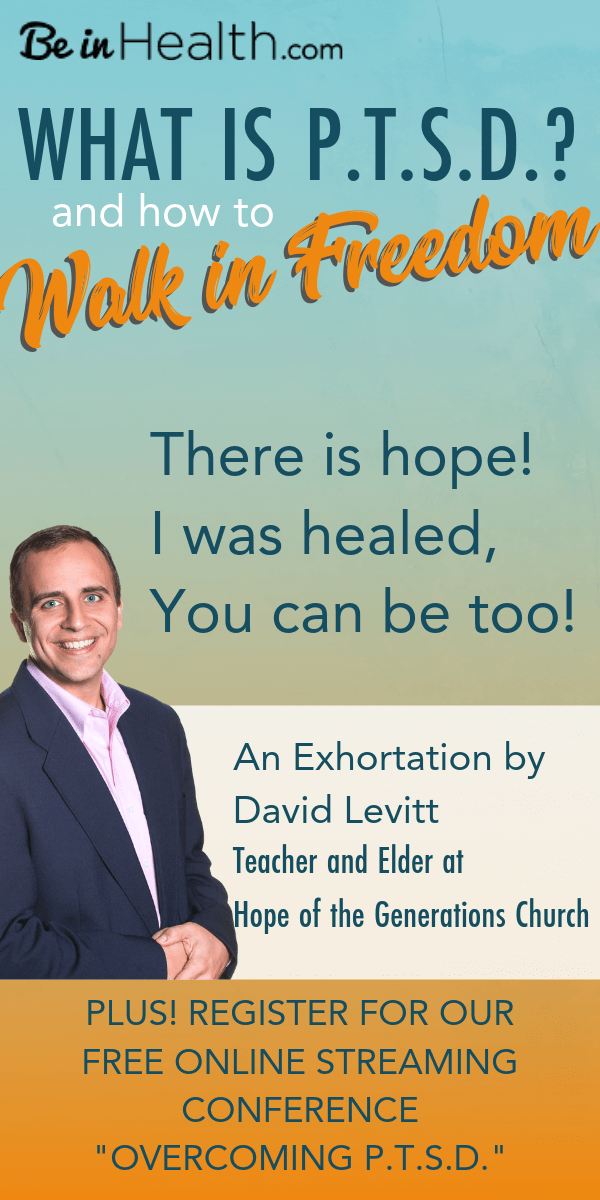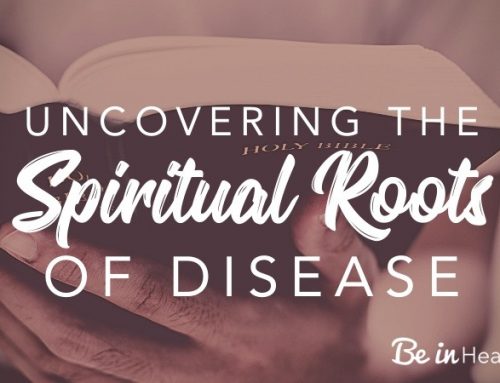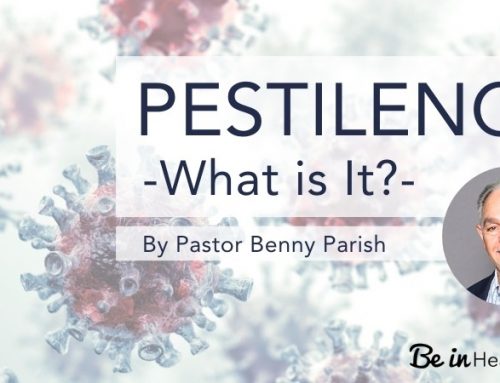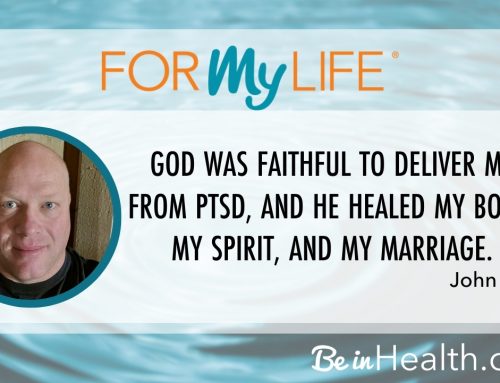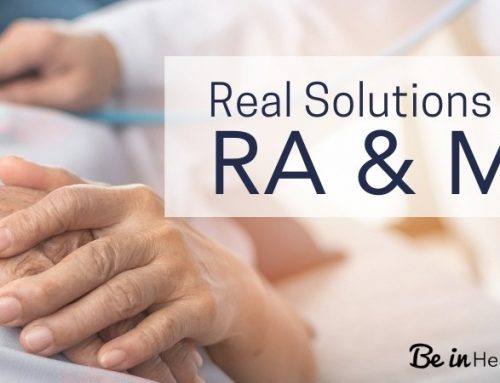This may sound funny, but I actually really like the name PTSD (Post Traumatic Stress Disorder) to identify the particular symptoms and struggles that are associated with it. Don’t get me wrong, I DO NOT like that people develop PTSD and struggle with it. But unlike other names given to diseases and disorders like, Spondylosis or something to that effect, PTSD actually tells me exactly what is going on without having to know Greek or Latin.
Think about it and dissect the name backward: A person has a disorder that is rooted in the stress that comes after (post) a traumatic event. This is precisely the problem. We all are exposed to many experiences throughout our lifetime and for some people, those experiences have been traumatic.
Accidents, loss of loved ones, war, violence, abuse and other experiences similar to those are actually things that God never intended us to have to face. But because we know that sin is in the world through Adam (Romans 5:12), these are things we may encounter.
We may not even be the victim of these traumatic events, perhaps we were just bystanders. Nevertheless, we can’t unsee and just forget what happened. And, if not worked through and processed correctly to come to a proper conclusion concerning the trauma, we may end up continually living out the stress of the trauma for years to come. That’s why this topic on what PTSD is and how to walk in freedom is so important – so that we can learn the correct way of dealing with whatever trouble we may face and not be cast down because of it.
What causes us to expect bad things?
No one really ever expects traumatic events to occur before they do, and that is a good thing. What a terrible life to wake up each day and walk around expecting a trauma to occur. That is actually a good definition of fear, living out a trauma event in your mind as if it already happened or is going to happen.
But when trauma does happen, many people are not prepared to deal with it. They lack the spiritual tools, understanding, and support that it takes to deal with the trauma and move on with their life. In fact, what most people don’t realize is those that do develop PTSD were actually predisposed to get it. More on that later…
My own journey through PTSD
I myself was diagnosed with PTSD after losing my father and brother within a month and a half span to heart attacks. I can look back at my life and see that even though my life was good, I did not possess the spiritual maturity to deal with the grief appropriately. My modus operandi (default mode of operation) was to go into denial about things, act as if it didn’t happen and move on with life because really I didn’t even know how to deal with everyday issues.
Things you don’t know how to deal with scare you so you avoid it. But that will never solve a problem. I tried this same approach when they passed away, but all I was really doing was letting the stress build and build until I broke. Now this blog is not meant to be about me, and it won’t be, but I share that just to say. I get it, I understand, and I know something about the causes and how to recover.
How is PTSD diagnosed?
Now, PTSD is usually diagnosed by the psychiatric industry through conversation and listening for and observing cluster symptoms. Some of these symptoms include: Recurrent upsetting thoughts or dreams of a past trauma event, panicked or fearful responses to experiences that resemble the past event, avoidance of thoughts, feelings, places, and people associated with the past trauma, feeling your future is shortened (fatalism), easily startled, and constant anxiety and fear of future bad events.[1]
A Brief History of PTSD
PTSD is still a relatively new diagnosis that was not even included in the DSM (Diagnostic and Statistical Manual of Mental Disorders) until 1980. However, many historical writings contain accounts of people struggling with symptoms that would make them candidates to receive a diagnosis of PTSD.
In some of the oldest literature known to mankind, there are references to someone struggling with what we would call, PTSD For example, in the Epic of Gilgamesh (circa 2100 B.C.), the main character Gilgamesh witnesses the death of his closest friend, Enkidu. Gilgamesh begins to become tormented by witnessing the death of his best friend, experiencing recurrent and vivid replays and nightmares related to the event.
Now this story is fictional, but the struggle that is being attached to Gilgamesh would have certainly come out of a real-life knowledge of what some people would experience in the aftermath of a trauma.
The original meaning of “nostalgia”:
In the late 1600s, Swiss physician Dr. Johannes Hofer coined the term “nostalgia” (I am thinking twice about how I use this word now, HAHA) to describe Swiss soldiers who suffered from despair and homesickness, as well as typical PTSD symptoms like insomnia and anxiety.
Around the same time, German, French and Spanish doctors described similar illnesses in their military patients. This “nostalgia” as they called it, began to manifest here in America and caught the attention of doctors during the Civil War. “Nostalgia” became common amongst the camps of soldiers of both the Union and Confederate armies. Unfortunately, many doctors viewed it not as a true condition, but simply as a sign of weakness that only affected those with a “weak will”.[2]
Misconceptions don’t help
I am sure their conclusion of those affected as simply having a “weak will” did not encourage anyone struggling with the symptoms, but probably made it worse. Trust me as someone that has walked that journey, you already feel bad enough about your current state and the enemy is just hammering you that you should be able to just put a stop to all the symptoms.
If only those doctors then knew our brains physiological response and dysfunction to ongoing, undealt with stress coming out of traumas, they would have known it was not an issue of the will. In fact, their will at the soul level was, well “busted”. They couldn’t stop it if they tried. But really someone should have known from the scriptures (I’m sure some did) the source of the problem was not even the person, but a spirit of fear that joined them in the trauma event.
And please don’t think that just because I have used examples of soldiers, that they are the only demographic of people that may develop PTSD Any person that has witnessed or endured a trauma of any kind may become susceptible.
How Does PTSD Take Root in a Person’s life?
Our brains are an amazing part of God’s creation, but our enemy knows how to manipulate them into dysfunction. PTSD is a great example of this. God created our brains with a fight or flight mechanism. This is a response triggered by the limbic system when a threat is detected. It basically puts our mind and body into survival mode. There is a rush of hormones and other physiological changes that make us run faster, fight harder, and become hyper-focused so that we can overcome any threat.
The part of the limbic system that gets this in motion is the amygdala. Thankfully, another gland in the limbic system, the hippocampus, helps us identify if something is a true threat or not by utilizing our long-term memory. If the hippocampus identifies something as a false alarm or helps us realize the threat is past and we are no longer in danger. Then part of the brain called the pre-frontal cortex will begin to mediate the fight or flight response, the hypothalamus will get that signal and tell the endocrine system to calm down and our minds and bodies return to rest.
Yes, there is a lot more to this and we offer more in depth detail to the brain’s physiological response to a threat in the streaming conference on Overcoming PTSD with Dr. Wright.
Hijacked processor
Now, what a spirit of fear will do is take the opportunity coming out of a traumatic event to hijack a person’s limbic system. What do I mean by “hijacking” a person’s limbic system? When you witness something traumatic you will have a fight or flight response… You are supposed to and if you don’t your amygdala are underactive and that is a whole different issue. Once the threat is gone and/or you realize it was a false threat your limbic system comes back to peace.
However, a spirit of fear can keep your limbic system geared up and overactive. One of the things a spirit of fear does in the lives of people is that it has them relive something in their mind over and over again as if it is happening or will happen again, even though it is not. But even if the trauma event is not really happening our brains still function AS IF IT IS!
So in PTSD a spirit of fear is using a trauma event and giving that person pictures of it happening or apprehensions that it will happen again and the brain responds in fight or flight. Now, because the spirit of fear is invisible and just keeps giving a person these sights, sounds, and impressions from within and the person is not resisting or dealing with these temptations according to knowledge, the limbic system never comes back to peace.
Now you’ve been programmed
Then the brain actually starts to conform to be in a perpetual state of fight or flight. The amygdala becomes enlarged and the hippocampus, the pre-frontal cortex, and other glands responsible for the regulation of the fight or flight response become underactive and may even shrink. The result is that the stress coming out of the traumatic event has now turned into a physiological disorder of the mind.
Just because a spirit of fear wants to hijack a person’s limbic system coming out of a trauma event does that mean he can do it at his will??? Absolutely not… However, if we do not understand how to deal with trauma and have little to no spiritual discernment, we are very susceptible to following these thoughts and feelings that could lead to this type of disorder.
All that being said, the issue is not your brain, but the spirit of fear causing the brain to be in constant fight or flight. Remember, we don’t wrestle against flesh and blood, but against principalities, against powers, against the rulers of the darkness of this world, against spiritual wickedness in high places (Ephesians 6:12)
That brings up a really big question. Why doesn’t everyone that experiences trauma get PTSD?
Earlier I mentioned when someone develops PTSD, more than likely they were predisposed to develop it. It was just a matter of them being exposed to a traumatic event before it kicked in. Let me explain. Many people inherit a spirit of fear and are taught to be fearful people by parents and others around them. And you know, they seem to get by and lead normal lives, but the way they cope with fears and little stressors in life is setting them up to not be able to properly deal with more traumatic events that may occur in life.
I actually inherited a spirit of fear that predisposed me to develop PTSD Before I experienced a traumatic event I was a professional stuffer and avoider. I didn’t talk about struggles for fear of someone thinking I was weak or fear I would burden them. Even though there were people around me that loved me, I didn’t feel safe to be weak in front of them. I would avoid conflict and when fears and worries would come from a spirit of fear I would just busy myself, check out, and simply act like they were not there and everything was fine.
Good enough may not be good enough…
Well, that worked fine for me until a real trauma event hit my life. Many other people have the same story. You see, if a person struggles with low-level anxieties that don’t seem to interfere with everyday life, they still have a limbic system that is more active than what God designed. So when the trauma event does occur the fight or flight response is even more heightened and the memories more defined. That spirit of fear simply uses all those feelings and memories coming from that heightened fight or flight response to continually keep the person in fight or flight.
It’s a setup!
Now think about it, at that point what do you need the most? Love and support… Perfect love casteth out fear (1 John 4:18). But what has the spirit of fear already trained that person to do? Well, exactly how I described myself. Inverted when it comes to being weak, avoidance, escape, and never addressing real issues. You know I didn’t even want the knowledge that could have set a path for freedom. I was too fearful to face the truth. I just didn’t want to think about anything. That is how the enemy “taught” me to overcome fear.
Ignorance is bliss…or is it?
Here is the thing, perfect love cannot cast out fear if a person does not let love in. We have to begin to trust again, a little bit at a time. Not everyone will abandon you, not everyone will hurt you or think there is something wrong with you, but you must come out of hiding, and this includes hiding from your Father in heaven.
How can we get through troubles in a healthy way?
Individuals that feel safe and secure in their relationships, talk through struggles, and know that there are people they can lean on for support during hard times. If they understand how Satan’s kingdom works to try to influence us, and are grounded and rooted in their faith in our Father through Jesus Christ, they are not really good candidates to develop PTSD.
No doubt, they will experience some stress from the event, and they may even need to grieve for a time and they will be tempted to listen to fear, but they are also willing to address the issues. They are able to cast down thoughts of fear, let others and God love on them and support them during their time of weakness, and to allow the joy of the Lord to be their strength (Nehemiah 8:10).
Avoid isolation!
The big snare for a person predisposed to develop PTSD is that they are much more likely to try and work through the trauma event in isolation. The second type of person I described that is not likely to develop PTSD allows others to help. But truth be told, especially in the case of children who suffer the trauma of abuse, usually there is no one to go to. At the same time, this is why widows and orphans are the first ministry of God the Father (Psalm 27:10, James 1:27)
Can a Person be healed and recover from PTSD?
Absolutely! With God nothing is impossible, and we have seen it many times here at Be in Health®. Sometimes healing might happen instantly, but for most, it is a walkout. It really depends on factors coming out of the person’s life and background to numerous to list and define in this article.
We these things in more detail in our online streaming of the Overcoming PTSD conference!
So where does a person begin in overcoming PTSD?
Do we start by coming against the spirit of fear? Well, perhaps that seems like the right place to start, but let’s think about this for just a moment. When a traumatic event occurs, it involves the failure of another, yourself, or a perceived failure on God’s part – “God why didn’t you prevent this from happening?” Usually, before the symptoms of PTSD develop, an individual has accusation, unforgiveness and bitterness toward the people involved, themselves, or God. It may be subtle, but it is most likely there.
Don’t miss this essential step!
Even though the spirit of fear is the primary source of the P.TS.D. symptoms, the first step is to forgive. Forgive those responsible for the trauma, and all involved. Sometimes we’re just mad about the whole circumstance and can’t place a finger on “who” we are mad at.
For example, I was in town visiting my parents when my father passed away. I was there for the event and became bitter that it worked out that way. Thoughts like, “Why did it have to happen while I was there. I wouldn’t have been exposed to it if it had just happened while I was gone…” flooded my mind. Folks, no one can control that, it is what it is… forgive the whole thing, forgive yourself, and please don’t make God responsible. Sin is in the earth and God is not pleased that it happened either. But He is there to help us recover from it.
There is hope and light in a fallen world
Romans 8:20 is a scripture that has really helped me reconcile this and let God off the hook. It says, “For the creature was made subject to vanity, not willingly, but by reason of him who hath subjected the same in hope,”. What does that mean? It means that even though sin is in the earth and we may be subjected to things (vanity) that are meant to destroy us, God still sees it fit to bring us into this world, because He has laid out a plan that will deliver us from that vanity and restore us to hope no matter what happens to us. If God becomes our problem, He cannot become our solution.
You are not a victim! You are a son or daughter of God!
Don’t be a victim of other people by staying bitter, don’t be a victim of events and circumstances you can’t control by staying upset that it happened. Rather, allow God, His Word, and the love and wisdom of others to help you work through it. We are never promised a trauma-free life, but we are offered deliverance and freedom from the damage if we turn to Him.
The step we’ve all been waiting for:
Now, after taking care of bitterness, then begin to address the spirit of fear. Repent to your Father for following all the temptations of fear and distrust of Him and ask to be delivered (Psalm 34:4) Take those thoughts captive and bring them back to how the Word thinks.
Check out this powerful promise:
You know, one of the symptoms of PTSD is feeling like your future is shortened. Well, what does the Word say? 1 John 2:25 says, “And this is the promise that he hath promised us, even eternal life”. Now, if we begin to cast down the thoughts and feelings that our future is shortened and replace it with the Word which says that in Christ, your future cannot end, what do you think will happen?
What will happen is your soul will respond and begin to be renewed. That means the physiological response of your limbic system that the spirit of fear and meditating on it produces will begin to stop and will then begin to have a physiological response of peace because your future has no end in our Father through Jesus Christ. The PTSD will begin to fade away!
Something solid to stand on:
So, in all this, it is important that we are not led by our feelings, but by the Word of God. Truth is truth apart from feelings, and to be honest I am really happy about that. I love the Word because it is based on absolute fact, and because of that, my feelings don’t have to rule me, but rather the Word is able to. His Word is true even when our brains are dysfunctioning. His Word can make our mind sound again.
For God hath not given us the spirit of fear; but of power, and of love, and of a sound mind. 2 Timothy 1:7 KJV
Some Closing Thoughts
You know, it is difficult to overcome anything in ignorance and without the right tools. I have shared some of my journey to healing and some insights into overcoming PTSD, but there is no way I am able to write about all of the really important teachings that helped me be an overcomer.
If you have never listened to the teaching on the Spirit, Soul, Body Connection, it is a must coupled with the teaching on Separation. Also, the 8r’s to Freedom, 7 Steps to Sin, and the Father’s Love will serve you well. All of these were really important to me and still are to my overcoming journey and to staying free.
And don’t forget to watch the online Overcoming PTSD conference. You are sure to get incredible revelation and even more powerful keys to your freedom and deliverance from the tormenting reality of PTSD.
Ultimately the gospel is the solution for PTSD There is forgiveness that can be applied to the trauma, deliverance from fear, hope of eternal life, and the reality of being able to die to the past and look ahead to the future knowing that in the end, everything will be safe and secure.
Blessings,
David Levitt
Would you like to learn more about how to overcome PTSD?
Check out our Overcoming PTSD Resource Page HERE!
Or if you would like to purchase the Overcoming PTSD conference in CD or MP3 format click here:
References:
[1] Amen, Daniel G.. “Looking into Anxiety and Fear.” Change Your Brain Change Your Life, 2nd edition, New York, NY, Harmony Books, 1998, pg.142.
[2] https://www.history.com/topics/inventions/history-of-ptsd-and-shell-shock#section_4

